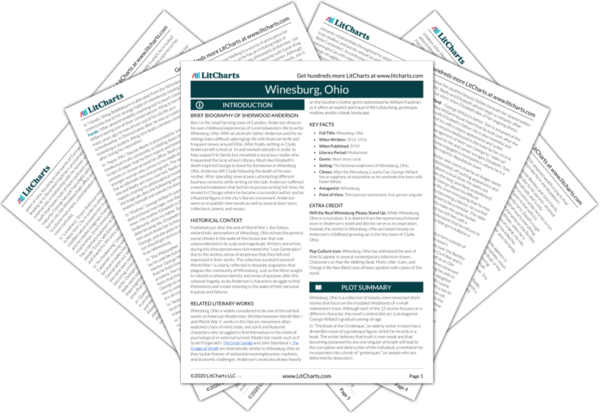The writer’s conviction that truth is entirely man-made reflects the crisis of faith that society experienced after World War I. The collective principles and values of the West lost their significance in the wake of the most violent conflict the world had ever seen. As a result, society struggled to find a meaningful belief system and generally came to view lofty values (such as truth, beauty, and morality) as man-made rather than divinely ordained. The narrative of “The Book of the Grotesque” asserts that people are destroyed rather than strengthened when they commit themselves to singular truths, a fate that prophetically befalls many characters throughout
Winesburg, Ohio.
